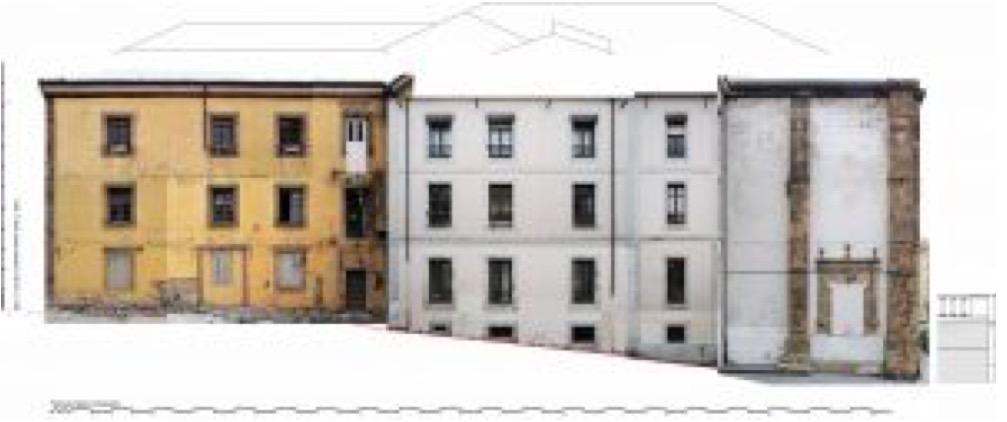PARTICIPA TABACALERA, GIJON, SPAIN

PROJECT DESCRIPTION
To define the uses for the derelict Tabacalera several activities like neighbourhood workshops, citizens’ survey and Sectorial and transversal working tables were combined and implemented.
Envisioning
To define the functions and uses for the reuse of the Tabacalera, empty since 2002, in a participative approach based on consensus and deliberation several actions were implemented:
- Neighbourhood workshops
Workshops among the neighbours and workers from the Cimavilla neighbourhood, where the Tabacalera is located, were organised to get to know their vision, interest and expectations for the reuse of the Tabacalera. These workshops allowed an approximation to the immediate citizenship context, opening the debate about the potential uses with regards to their own needs and interests. Each workshop took around 2 hours following the Philips 6/6 method, dividing the participants into two groups. Each group developed their final conclusions about the uses and proposals to improve the pre-existent ideas.
- Citizen survey
The future of the Tabacalera is not only relevant to the neighbours of Cimavilla as the building is of citywide importance and can host functions of relevance for the entire city. So to know about the opinions of “all” citizens a citizen survey (online and physically at municipal centres) was launched through which citizens could value the proposed uses and propose own ideas.
- Sectorial and transversal working tables
The sectorial tables facilitated the participation of sectors directly involved with the proposed uses and allowed the evaluation from a professional point of view. The transversal tables facilitated the meeting of the heads from the sectorial tables with municipal technicians, being a perfect chance to share their points of view. The results from the working tables were disseminated through Gijon’s Participative Platform, the municipal website and social media.
LESSONS LEARNED / RESULTS
This process can be transferred when it is necessary to find a solution that involves a larger amount of citizens and where a margin for the deliberation and validation of alternatives and functions exists. In relation of its execution the actions are not expensive. All the requirements to achieve good results (facilities, staff, preparation of courses, website...) are tools that usually a municipality in a partnership can provide.
DATA
City information
Population size: 251-500 thPopulation development dynamics within the city administrative limits (at the time of the project): Shrinking
Population development dynamics of the functional urban area (at the time of the project): Shrinking
Website of the city: http://www.gijon.es/
Project information
Project territorial scale:
Other specific territoryProject geographical area: City centre
Project/building proportions: Over 1000 sqm; Project Area: No data/not applicable
Project main actors: City Government; Cultural, creative organisation, non-commercial private sector; Resident association, group, citizens
Project dominant property ownership: Public
Project development stage (at the time of description): Half way
Project duration: 2 to 5 years
Project starting date: 2015-2018



